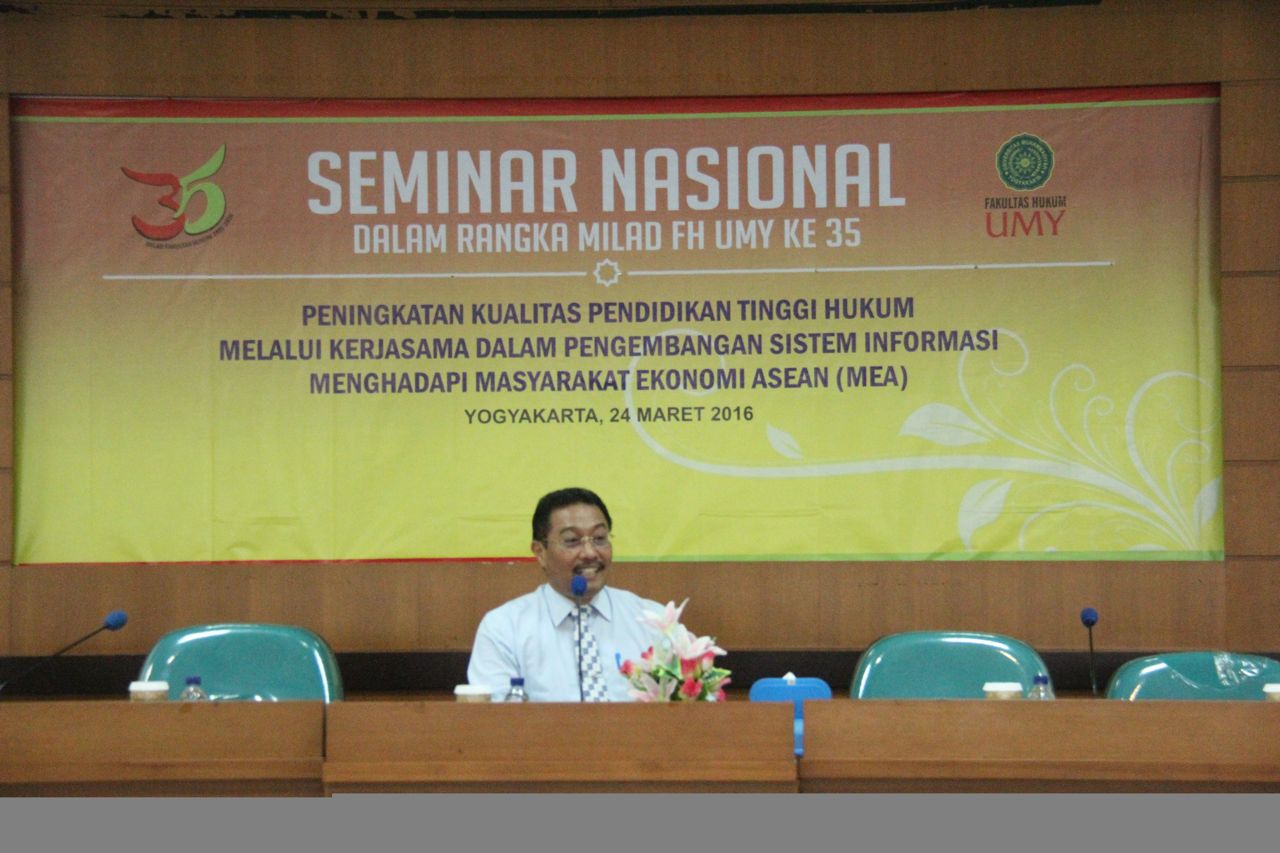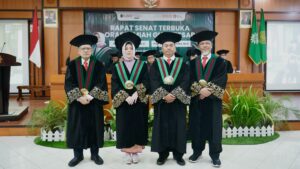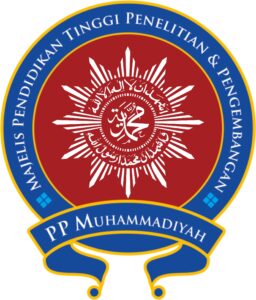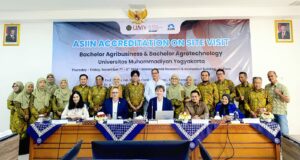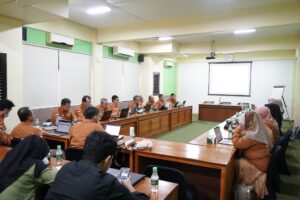The demand of graduates of Law is quite great but stable. In a national seminar ‘Enhancing the Quality of Law Faculty through Cooperation of Information System Development in Confronting ASEAN Economic Community (AEC)’ on Thursday (24/3) at meeting hall of AR Fachruddin A of Universitas Muhammadiyah Yogyakarta (UMY), Coordinator of Kopertis V as well as the seminar speaker, Dr. Ir. Bambang Supriyadi, CES, DEA informed that, according to data in 2003, there were 200 faculties of Law in Indonesia that there were 100 graduated students of each faculty or 20,000 graduates each year.
“One of the emerging issues dealing with the great number of graduates is whether they can meet public demand. The compliance can be undertaken by fostering the students’ ability in information technology which is believed as one of the effective instrument of global commodity,” Bambang argued.
One of the viral information technology developments of public in facing competitiveness of AEC is, for instance, the existence of online application such as online taxi and Gojek. The information technology development could make new economy more efficient, innovative, and accessible, but the development can bring out cybercrime escaping from law. “Cyber activities refer to virtual activities bringing obvious impacts even though the evidence is electronically. Hence, the subjects should be disqualified because they have broken the law.
The circumstance portrays that people in the world have possessed a new world, so-called digital era noticed by the easiness of electronic stuff accessibility. Nevertheless, the technology development entails cyber security that only a few people care about the aspect. Bambang recommended that higher education could be engaged in resisting the cybercrime. “The information technology development is an instrument of global trade, but the cyber security is necessary and it can be performed by approaches of technology, socio-culture, ethics, and law.
Bambang expected that, in this digital era and the AEC era, higher education particularly Law Faculty could actively be involved in creating excellent graduates not lagging far behind the technology development. Therefore, they will easily immerse in Indonesia and ASEAN.
